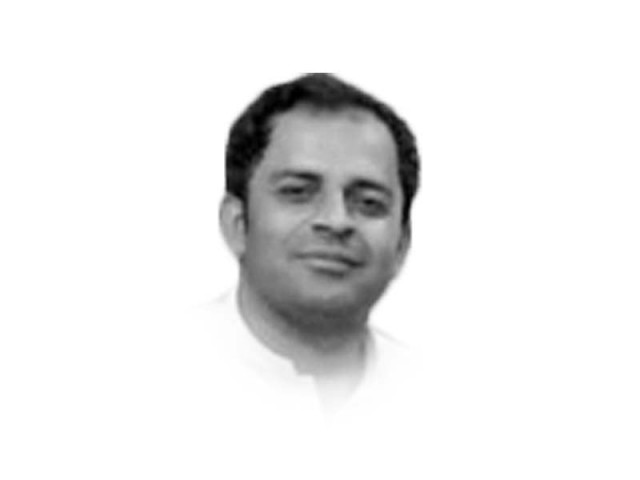Unsatiating megalomania
Pakistan's institutional greed and lack of balance of power

We, as a nation, suffer from megalomania – a power hunger mentality that pushes one to concentrate and hold as much power as possible. Be that an institution or an individual, wielding and yielding power is what’s pursued the most. Extending the tentacles beyond the constitutional bounds remains a common practice in Pakistan. The military’s frequent transcends beyond barracks, intermittent judicial over-activism and parliament-executive nexus reflect institutions’ insatiable appetite for power – irrespective of where the interest of the masses lies. The media’s role also morphed from the mouthpiece of the subjects to that of polarised institutions and dynastic political elite.
This institutional greed for extending the sphere of influence has resulted in intermittent instances of plutocracy, disciplined judicial coup, dynastically imposed civilian dictatorship and subsequent derailment of democratic culture. Furthermore, the ugly power game blurred the constitutionally established bounds and led to the overlapping of domains. This has brought the institutions at odds. Civil-military friction, judicial-military clash and parliament-executive nexus have kept the genuine democratic principles from thriving.
However, over time, the institutions have begun to realise each other’s inevitability and accommodate each other’s roles regardless of their constitutionality. This accommodation is reflected in the institutions’ complaints of interventions in each other’s sphere. This has led to hybrid regimes with institutions, as chief kingmakers, deciding the succeeding government while rendering public choice secondary to statecraft. The imposed civilians symbolically occupy the driving seat in hybrid regimes to dress it up as democracy. Hence, our democratic regimes do not necessarily reflect the voluntary or informed public choice.
During its 75-year-long journey, the country has undergone institutions-sponsored socio-economic and desperate hybrid political experiments. Intoxicated in megalomania, cloaked in democratic colour and obsessed with euphoric self-righteousness, the institutions left no stone unturned to push the country to the brink of bankruptcy. Meanwhile, the absence of a vibrant institutional accountability mechanism has had the nation suffering more or less the same over the years. More worrying, however, is the impression the institutions framed on the limits of democracy in the country. People had been made to believe that only ritualistically fixed elections and rotation of pampered dynastic and populist elite is what can be the best shape of democracy. Hence no enlightened alternative. This unbridled institutional encroachment dwarfed the institution of democracy and subsequently the prospects of people’s growth.
What has brought us to this amorphous pass? Inevitable interventions notwithstanding, civilians have failed to drive the country on road to genuine democratic values. Their inefficiency has left the vacuum to be filled in by others. Rather than watering democratic values and reciprocating public trust, they did their best to secure riches and political careers. The widening divide between electoral promises and service delivery – as well as civilian leaders seeking intervention from unelected institutions to buoy their sinking political ships or to punish political rivals – have led to an estranged electorate. Why are they so doing? The answer lies in the composition of civilian setup that we have traditionally had.
Since dynastic political enterprises form the nucleus of our civilian setups, they employ every trick possible to maintain their grip on power. Political parties over time have extended their influence across the country, but mainly by patronising the electable. Those on the other side of the political divide thus tend to seek the blessed glances of powerful institutions, promising optimum accommodation of their interests in return. Thus the political forces that best serve the interests of the institutions manage to cling on to the power. Thus hybrid in composition, the civilian coup continues to hijack the fate and fortune of the nation.
Unless all institutions stay within their constitutional bounds, democracy will continue to serve as a legitimate tool for power elite. Since genuine democracy and institutional overreach cannot coexist, only trusted neutrality and respect to constitutional bounds could put the country’s derailed democracy back on track.
Published in The Express Tribune, June 5th, 2022.
Like Opinion & Editorial on Facebook, follow @ETOpEd on Twitter to receive all updates on all our daily pieces.

















COMMENTS
Comments are moderated and generally will be posted if they are on-topic and not abusive.
For more information, please see our Comments FAQ